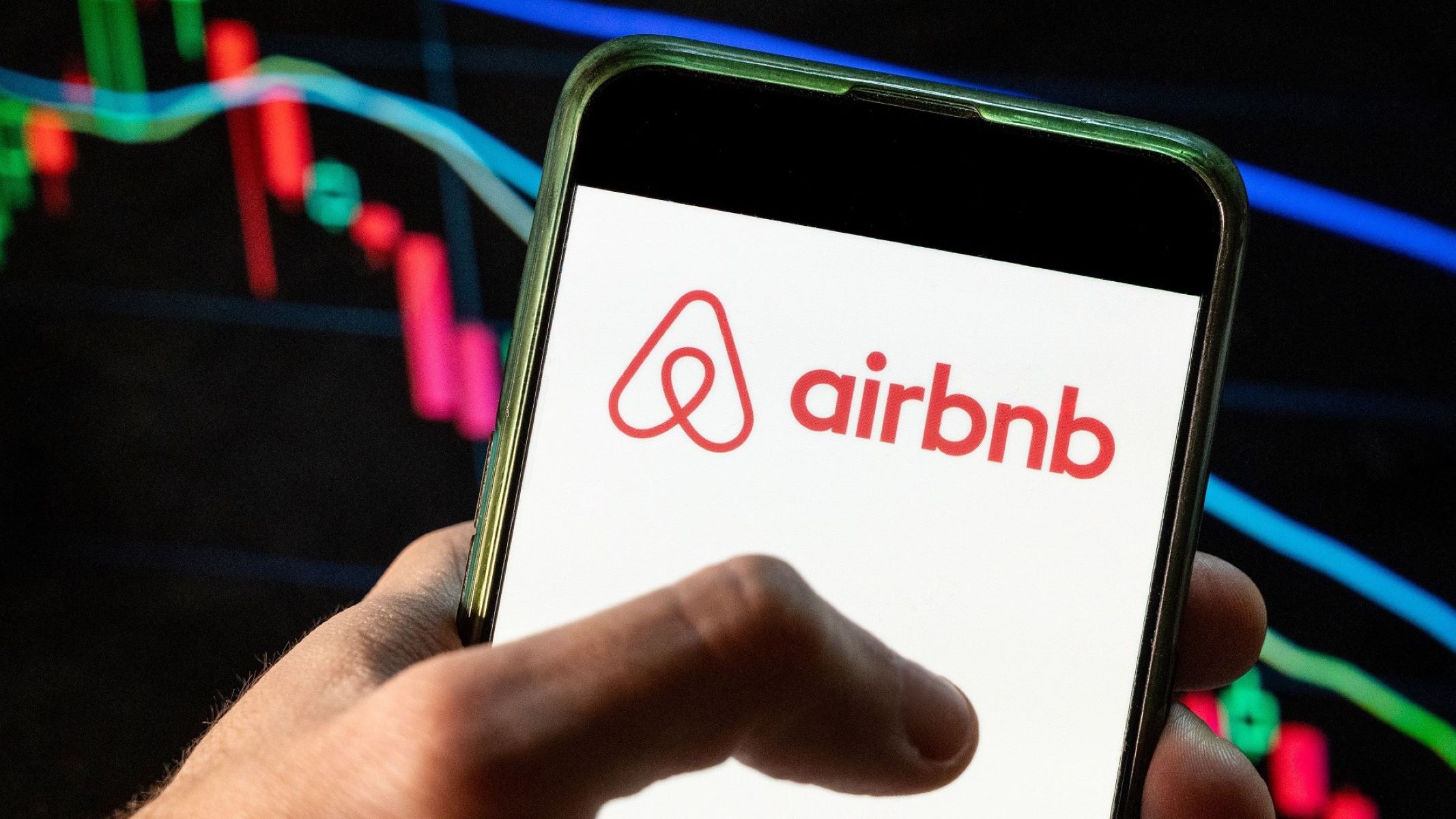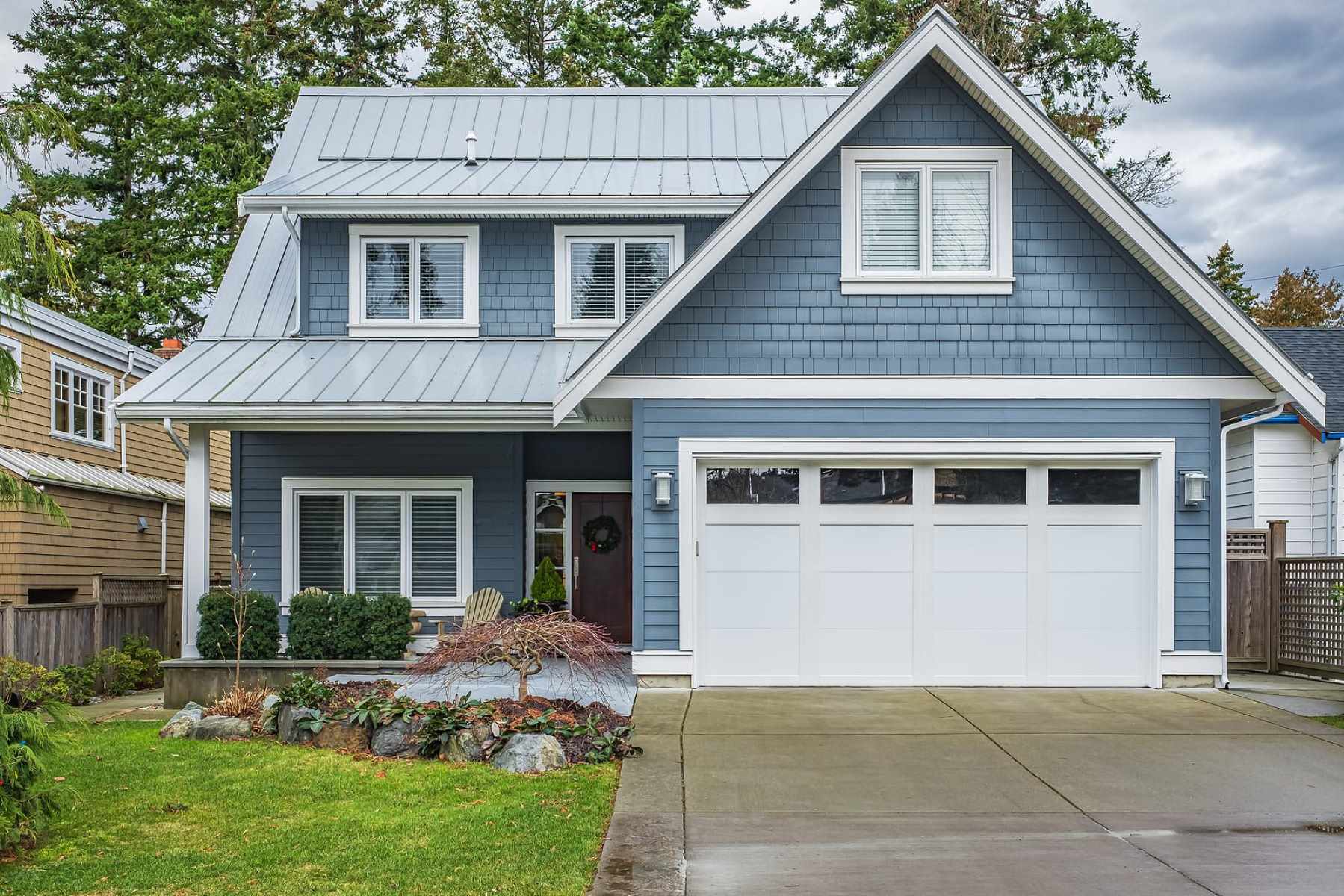

Finance
How To Buy An Airbnb Investment Property
Published: October 18, 2023
Learn how to finance your Airbnb investment property and make a smart purchase with our step-by-step guide. #Finance #AirbnbInvesting
(Many of the links in this article redirect to a specific reviewed product. Your purchase of these products through affiliate links helps to generate commission for LiveWell, at no extra cost. Learn more)
Table of Contents
Introduction
Investing in real estate has always been a popular choice for individuals looking to grow their wealth and secure a stable source of income. In recent years, the rise of the sharing economy has opened up new opportunities for investors, with platforms like Airbnb offering the chance to profit from short-term rentals. Buying an Airbnb investment property can be a lucrative venture, but it requires careful planning and consideration.
In this article, we will explore the key factors to consider when purchasing an Airbnb investment property. From research and analysis to financial considerations and legal regulations, we will guide you through the process of making a smart investment decision.
Before diving into the specifics, it’s important to note that investing in real estate, including Airbnb properties, carries risks. Market fluctuations, changes in tourism trends, and unexpected expenses can all impact the return on your investment. However, with thorough research and a well-thought-out plan, you can minimize these risks and maximize the potential for success.
Throughout this article, we’ll provide you with actionable insights and strategies to help you navigate the complex world of Airbnb investing. Whether you’re a seasoned real estate investor or new to the game, this guide will equip you with the knowledge and tools to make informed decisions and achieve long-term success.
So, if you’re ready to explore the exciting world of Airbnb property investment, let’s begin our journey by delving into the research and analysis phase.
Research and Analysis
Before you start searching for an Airbnb investment property, it’s essential to conduct thorough research and analysis. This step will help you identify market trends, determine the demand for short-term rentals in a particular location, and assess the potential profitability of your investment.
Here are some key aspects to consider during the research and analysis phase:
- Market trends: Look for cities or regions that have a thriving tourism industry and a high demand for short-term rentals. Consider factors such as historical growth rates, the number of visitors, and any upcoming events or developments that may impact the market.
- Regulatory environment: Investigate any regulations or restrictions specific to short-term rentals in the desired location. Some cities have imposed limitations or licensing requirements, so be sure to understand and comply with all local regulations.
- Competition: Analyze the existing inventory of Airbnb properties in the area. Assess the number of listings, occupancy rates, and average rental prices. This information will give you insights into the level of competition and potential rental income.
- Target market: Determine the type of guests you want to attract and tailor your property accordingly. Consider factors such as proximity to tourist attractions, amenities, and the overall appeal to your target audience.
- Property characteristics: Take into account the size, layout, and features of the property. Consider the number of bedrooms and bathrooms, living space, and amenities like a pool or a patio. This will impact the rental rates and the appeal to potential guests.
During this research phase, it’s crucial to gather data from reliable sources, consult local real estate agents, and analyze market reports. Additionally, tapping into online platforms like Airbnb itself can provide valuable insights into the rental performance of similar properties in the area.
By investing time and effort in thorough research and analysis, you can narrow down your options and identify the most promising locations for an Airbnb investment property. Armed with this knowledge, you’ll be better equipped to proceed to the next phase: location selection.
Location Selection
Choosing the right location for your Airbnb investment property is crucial for its success. The location can significantly impact the demand, occupancy rates, and rental income potential. Here are some factors to consider when selecting a location:
- Tourism hotspots: Look for areas that attract a high number of tourists throughout the year. This could include popular vacation destinations, vibrant city centers, or areas with unique attractions and landmarks. The higher the demand for short-term rentals, the more likely you are to achieve a steady stream of bookings.
- Accessibility: Consider the accessibility of the location. Is it easily accessible by road, rail, or air? Is there a well-connected public transportation system? Guests are more likely to choose properties that are convenient to reach and allow them to explore the surrounding area.
- Safety and security: Safety is a top concern for travelers. Ensure that the location you choose has a low crime rate and is known for being a safe and secure area. This will not only attract more guests but also give your property a positive reputation.
- Nearby amenities: Evaluate the proximity of your property to essential amenities such as grocery stores, restaurants, shopping centers, and recreational facilities. Guests appreciate convenience, and having these amenities nearby can increase the appeal of your property.
- Local attractions: Consider the proximity of popular tourist attractions, landmarks, and entertainment venues. Being close to these attractions can make your property more desirable and increase its rental appeal.
- Regulatory environment: As mentioned earlier, it’s crucial to consider the local regulations and restrictions on short-term rentals. Some cities have imposed limitations on renting out properties, so make sure to choose a location where you can legally operate an Airbnb property.
When assessing potential locations, it can be beneficial to visit them in person or engage with local real estate agents. They can provide insights into the local market, rental demand, and the overall suitability of the area for an Airbnb investment property.
Remember, choosing the right location is a critical decision that can determine the success of your Airbnb property. By thoroughly evaluating each potential location based on the factors mentioned above, you can increase the chances of attracting guests and generating consistent rental income.
Financial Considerations
When investing in an Airbnb property, it’s important to carefully consider the financial aspects to ensure a profitable venture. Here are key financial considerations to keep in mind:
- Purchase price: Calculate the total cost of acquiring the property, including the purchase price, closing costs, and any associated fees. Ensure that the price aligns with the property’s value and potential for generating rental income.
- Operating expenses: Identify the ongoing expenses involved in maintaining and operating the property. This includes property taxes, insurance, HOA fees, utilities, property management fees, and maintenance costs. Subtracting these expenses from the rental income will give you an idea of the potential profitability.
- Return on investment (ROI): Evaluate the potential ROI of your Airbnb property. Calculate the expected rental income and compare it with the total investment. Consider factors such as seasonal demand, occupancy rates, and rental prices in the area to estimate the potential ROI.
- Capital appreciation: Look into the historical and projected appreciation rates of properties in the location you are considering. While rental income is important, the potential for capital appreciation can significantly contribute to your long-term investment returns.
- Financing: Determine whether you will finance the property through a mortgage or if you have enough funds for an all-cash purchase. Consider the interest rates, loan terms, and associated costs of financing to understand the impact on your overall financial outlook.
- Tax implications: Consult with a tax professional to understand the tax implications of owning an Airbnb investment property. Certain tax benefits and deductions may be available, but there may also be local taxes and regulations specific to short-term rentals in your area.
It’s important to conduct a thorough financial analysis to assess the viability and profitability of your Airbnb investment property. Create a detailed financial plan that factors in all expenses, rental income projections, and potential scenarios to understand the potential risks and rewards.
Remember, every investment comes with some level of uncertainty, and it’s crucial to be prepared for unexpected situations that may impact your financial outlook. By carefully considering the financial aspects, you can make informed decisions and set realistic expectations for your Airbnb investment property.
Financing Options
When purchasing an Airbnb investment property, you have several financing options to consider. The financing method you choose will depend on your financial situation, investment goals, and risk tolerance. Here are some common financing options for Airbnb properties:
- Traditional mortgage: This is the most common financing route for real estate investments. You can apply for a mortgage loan from a bank or mortgage lender, which involves making a down payment and paying off the loan over a set term with interest. Keep in mind that lenders may have specific requirements for Airbnb properties, so it’s important to check with them beforehand.
- Home equity loan or line of credit: If you already own a property with equity, you can tap into that equity by taking out a home equity loan or line of credit. This allows you to borrow against the value of the property you currently own and use those funds to finance your Airbnb investment property.
- Private financing: Private financing involves borrowing money from individuals or private lenders. This option can be more flexible and may not have strict requirements like traditional mortgage lenders. However, private financing often comes with higher interest rates and shorter loan terms.
- Crowdfunding: Another increasingly popular financing option is crowdfunding. There are platforms specifically designed for real estate crowdfunding, where multiple investors pool their funds to finance properties. This option can provide access to capital without relying solely on traditional lenders.
- Seller financing: In some cases, the property seller may be willing to finance the purchase themselves. This arrangement involves negotiating terms with the seller, such as a down payment and repayment schedule, directly with them. Seller financing can be a viable option if you’re unable to secure traditional financing or if the seller is motivated to make the sale.
Before choosing a financing option, weigh the pros and cons, and consider factors such as interest rates, repayment terms, and eligibility requirements. It’s also crucial to calculate the impact of financing on your overall financial outlook, including cash flow, return on investment, and potential risks.
Remember to speak with mortgage lenders, financial advisors, and real estate professionals to explore the financing options available to you. Each financing method has its own considerations and implications, so it’s important to choose the option that aligns with your investment goals and risk tolerance.
Property Selection and Evaluation
Choosing the right property for your Airbnb investment is crucial for its success. Here are some key factors to consider when selecting and evaluating a property:
- Location: As discussed earlier, location plays a vital role in the success of your Airbnb property. Look for properties in areas with high demand for short-term rentals, convenient access to amenities and attractions, and a favorable regulatory environment for Airbnb operations.
- Property type: Decide on the type of property that aligns with your investment goals. This could be a single-family home, condo, townhouse, or even a multi-unit property. Consider your target market, the local rental market, and the management demands of the property type.
- Condition and potential renovations: Assess the property’s condition and determine if any major renovations or repairs are needed. Consider the costs involved and how these expenses will impact your overall budget and return on investment. A well-maintained property may require less initial investment but may come with a higher price tag.
- Size and layout: Consider the size and layout of the property. Evaluate the number of bedrooms, bathrooms, and common spaces to ensure they meet the expectations and needs of potential guests. A property with flexible space or the ability to accommodate larger groups can often command higher rental rates.
- Amenities and features: Assess the amenities and features offered by the property. This could include a pool, outdoor space, parking, Wi-Fi, or other amenities that guests typically seek. The more appealing and unique the amenities, the higher the potential for attracting bookings and generating higher rental income.
- Competition analysis: Research the competition in the area. Analyze similar properties listed on Airbnb to understand their occupancy rates, rental prices, and unique selling points. This will help you position your property and make it stand out from the competition.
Additionally, consider enlisting the help of a professional property inspector to evaluate the structure, electrical and plumbing systems, and overall condition of the property. They can identify potential issues and provide you with a comprehensive report before making a final decision.
Remember, in real estate investing, it’s crucial to strike a balance between meeting guest demands and managing your investment costs. The property you choose should not only attract guests but also provide a return on investment that aligns with your goals and financial expectations.
Rental Income and Occupancy Rates
Understanding the potential rental income and occupancy rates of your Airbnb investment property is essential for estimating its profitability and return on investment. Here are some key considerations:
- Market analysis: Conduct market research to understand the demand for short-term rentals in the area. Analyze rental trends, occupancy rates, and average rental prices for properties similar to yours. This will help you estimate the potential rental income and gauge the level of competition.
- Seasonality: Consider the seasonal nature of the rental market in the area. Some locations have peak tourist seasons, while others experience consistent demand throughout the year. Understanding the seasonal patterns will help you optimize rental rates and adjust your pricing strategy accordingly.
- Pricing strategy: Determine the optimal pricing strategy for your Airbnb property. Set competitive rates that attract guests while providing a return on investment. Consider factors such as local market trends, demand, and the uniqueness of your property’s features and amenities.
- Booking and occupancy management: Implement an effective booking and occupancy management system to maximize your property’s occupancy rates. This could include setting minimum stay requirements, optimizing the booking calendar, and leveraging technology solutions to streamline the booking process.
- Rental income projection: Create a financial projection by estimating the annual rental income based on occupancy rates and rental prices. Consider potential fluctuations in occupancy and adjust your projection accordingly. It’s also essential to account for factors such as cleaning fees, service fees, and taxes that may impact your net rental income.
- Reviews and guest satisfaction: Positive guest reviews and high levels of guest satisfaction are crucial for maintaining a steady stream of bookings. Provide exceptional customer service, promptly address any concerns, and create a welcoming and comfortable environment. Satisfied guests are more likely to leave positive reviews and recommend your property to others.
Keep in mind that rental income and occupancy rates may vary based on factors such as location, property type, amenities, and competition. It’s essential to stay informed about market trends, adjust your pricing strategy when necessary, and continuously monitor the performance of your property to maximize its rental income potential.
By conducting thorough market research, understanding the seasonality of the location, implementing effective booking and occupancy management strategies, and prioritizing guest satisfaction, you can optimize the rental income and occupancy rates of your Airbnb investment property.
Property Management
Efficient property management is key to the success of your Airbnb investment property. Proper management ensures the smooth operation of your rental business and keeps guests satisfied. Here are some important aspects to consider for effective property management:
- Guest communication: Maintain prompt and professional communication with guests from the initial inquiry to post-stay follow-up. Respond to inquiries and messages in a timely manner and address any concerns or issues promptly. Clear communication helps build guest trust and enhances their overall experience.
- Property maintenance: Regularly inspect and maintain the property to ensure it is in good condition. Address any necessary repairs or maintenance promptly to provide a comfortable and hassle-free experience for guests. Consider creating a maintenance schedule or hiring professionals for routine tasks like cleaning, landscaping, and pool maintenance.
- Check-in and check-out procedures: Develop a seamless and efficient check-in and check-out process for your guests. Provide clear instructions for accessing the property, utilizing amenities, and returning keys or access codes. Consider utilizing digital check-in solutions for a contactless and convenient experience.
- Cleaning and housekeeping: Maintain high cleanliness standards for your property. Ensure that the property is professionally cleaned between guest stays to meet guest expectations. Consider providing essential amenities such as toiletries, fresh linens, and a well-stocked kitchen to enhance the guest experience.
- Guest reviews and feedback: Encourage guests to leave reviews and provide feedback on their stay. Reviews play a crucial role in attracting future guests, so strive to provide an exceptional experience that prompts positive reviews. Address any negative feedback constructively and use it as an opportunity to improve your property and service.
- Legal compliance: Familiarize yourself with the local regulations and legal requirements for operating an Airbnb property. Ensure that you have the necessary permits or licenses, comply with tax obligations, and follow any local rules or zoning regulations. Staying legally compliant protects your investment and provides peace of mind.
Consider utilizing property management software or hiring a professional property management company to help streamline your operations, handle guest communication, and assist with maintenance tasks. These services can help ease the workload and ensure a high level of service for your guests.
Remember that effective property management not only enhances the guest experience but also contributes to positive reviews, repeat bookings, and a strong reputation for your Airbnb investment property. By providing exceptional service and maintaining your property to a high standard, you can attract more guests and maximize your rental income.
Legal and Regulatory Considerations
When investing in an Airbnb property, it is crucial to understand and comply with the legal and regulatory requirements surrounding short-term rentals. Here are some important considerations:
- Local regulations: Research and familiarize yourself with the specific regulations and ordinances governing short-term rentals in the area where your property is located. Some cities have restrictions on the number of days a property can be rented, zoning regulations, and licensing requirements. Understanding and adhering to these regulations is essential to avoid fines or legal repercussions.
- Permits and licenses: Determine if your property requires any specific permits or licenses to operate as an Airbnb rental. Some cities or homeowners associations may have specific requirements, such as obtaining a short-term rental permit or a business license. Ensure that you obtain all necessary permits before renting out your property.
- Tax obligations: Understand the tax implications of operating an Airbnb property. Short-term rental income is generally taxable, and you may be required to collect and remit occupancy taxes. Consult with a tax professional to ensure you comply with all local and national tax regulations.
- Insurance: Update your insurance coverage to include short-term rental activities. Traditional homeowner’s insurance policies may not provide adequate coverage for short-term rentals. Explore options for specialized short-term rental insurance to protect yourself and your property from liability and damage.
- Guest screening and safety: Implement a guest screening process to ensure the safety of your property and other guests. Consider verifying guest identities, requiring reviews from previous hosts, and setting clear house rules. Install safety features such as smoke detectors, fire extinguishers, and secure locks to provide a safe environment for guests.
- Intellectual property: Respect intellectual property rights when marketing your property. Avoid using copyrighted material, such as photographs or descriptions, without permission. Use original content or obtain proper licensing to avoid legal issues.
It’s important to note that the legal and regulatory landscape surrounding short-term rentals can be complex and may vary from one location to another. Stay updated with any changes in regulations and consult with legal professionals or property management experts for guidance.
Compliance with legal and regulatory requirements not only protects you from legal repercussions but also helps maintain a positive reputation as a responsible host. By understanding and adhering to the laws and regulations governing short-term rentals, you can operate your Airbnb property in a legally sound and responsible manner.
Potential Risks and Mitigation Strategies
Investing in an Airbnb property comes with its share of risks. However, with careful planning and implementation of appropriate mitigation strategies, you can minimize these risks and increase the chances of a successful investment. Here are some potential risks to be aware of and strategies to mitigate them:
- Market volatility: Real estate markets can be subject to fluctuations, and the demand for short-term rentals may change over time. To mitigate this risk, conduct thorough market research and select a location with a stable and growing tourism industry. Diversifying your investment portfolio with properties in different areas can also help spread the risk.
- Regulatory changes: Regulatory requirements for short-term rentals can change, which may impact your ability to operate your Airbnb property. Stay updated with local regulations, engage with industry associations or legal experts, and be prepared to adapt to any new requirements or limitations that arise.
- Unexpected expenses: Maintaining a rental property can involve unforeseen expenses like repairs, maintenance, or upgrades. Create a financial contingency plan and set aside funds specifically for these unexpected costs. Conduct regular property inspections to identify potential issues early on and address them promptly to avoid more significant problems and associated expenses.
- Damage or liability issues: Accidents, damages, or liability claims can occur with any rental property. Protect yourself by obtaining comprehensive insurance coverage that specifically covers short-term rentals. Implement a thorough guest screening process and set clear house rules to encourage responsible guest behavior. Regular property inspections can also help identify potential issues and mitigate risks.
- Low occupancy rates: Rental periods with low occupancy can impact your rental income. To mitigate this risk, utilize effective marketing strategies to attract a steady stream of guests. Optimize your listing on Airbnb with appealing photographs, accurate descriptions, and competitive pricing. Provide exceptional guest experiences to encourage positive reviews and repeat bookings.
- Unexpected economic downturns: Economic downturns can affect tourism and travel, resulting in decreased demand for short-term rentals. During times of economic uncertainty, consider adjusting your pricing strategy, exploring alternative target markets, or offering long-term rentals to maintain a steady income stream.
It’s important to conduct proper due diligence, stay informed about market trends, and have a comprehensive risk management plan in place. Discuss your investment strategy with professionals such as real estate agents, financial advisors, and legal experts to assess potential risks and develop suitable mitigation strategies.
Remember, while it’s impossible to eliminate all risks completely, being proactive and taking necessary precautions can help you navigate potential challenges and increase the likelihood of a successful Airbnb investment.
Conclusion
Investing in an Airbnb property can be a lucrative and rewarding venture, but it requires careful planning and consideration. By following the steps outlined in this guide, you can make informed decisions and increase the chances of a successful investment. From conducting thorough research and analyzing market trends to selecting the right location and property, each step plays a vital role in your overall strategy.
It’s important to remember that investing in real estate, including short-term rentals, comes with risks. Market fluctuations, regulatory changes, unexpected expenses, and other factors can impact your investment. However, by implementing appropriate mitigation strategies and staying proactive, you can minimize these risks and position yourself for long-term success.
Maintaining a high level of property management, including effective guest communication, property maintenance, and adhering to legal and regulatory requirements, is crucial for providing a positive guest experience and achieving higher rental income.
Lastly, continually monitor the performance of your Airbnb investment property, adapt your strategies as needed, and stay informed about market trends and changes in the industry. By staying proactive and leveraging the opportunities that arise, you can maximize your investment returns and build a successful Airbnb rental portfolio.
With careful planning, thorough research, and thoughtful execution, your Airbnb investment property has the potential to provide a consistent stream of income and contribute to your long-term financial goals. Good luck on your journey as an Airbnb property investor!














